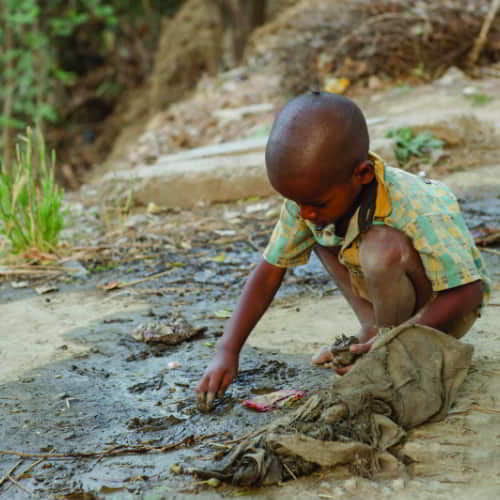Building wells in Africa: A fountain of blessings
According to the World Health Organization, half the world’s population will be living in water-stressed areas by 2025.[1] Africa is one of the hardest hit places in the world due to drought, shifting population needs and infrastructure demands. This is why building wells in Africa must be a priority for organizations who can help ease the crisis millions are facing.
A 2022 brief by UNICEF says of the situation: “The protracted drought has led to a water crisis, with more than 8.5 million people, including 4.2 million children, facing dire water shortages across the region. Water scarcity is killing livestock, drying up crops and driving families from their homes in search of water.”[2]
Africa has mostly arid climates. Surface water is limited, and large bodies of water to draw from are simply not available in most places. However, there is a sustainable solution. As one article from the University of Texas explains, “Most cities in Africa rely on surface water from lakes, rivers and human-made reservoirs. But there is an abundance of groundwater across the continent, with annual groundwater recharge being comparable to the volume of water that flows through the Congo, Nile, Niger and Zambezi rivers each year combined.”[3]
In order to access this water, you must drill deep below the surface of the land. Drilling below the surface reaches pockets of water with minimal contamination, which is a major issue for many water sources on the surface, like lakes, ponds and streams. Debris, runoff and waste are common contaminants for surface water in many places in Africa. Dry climates also mean that this surface water is unreliable, with water sources often drying up completely during the hottest months. Drilling for water eliminates this problem as underground water does not evaporate.
This is a key time for building wells in Africa. The water crisis is in full swing, but partnering with a charity building wells in Africa can mean the difference between life and death for many millions of people.


Comments
Post a Comment